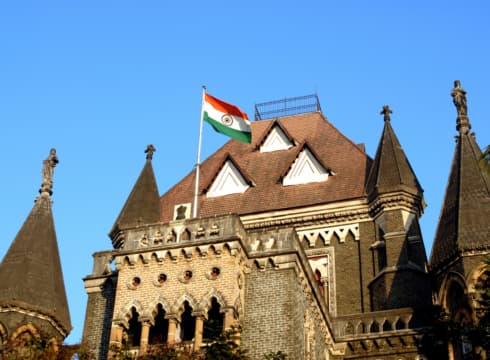Fact-check unit necessary to cturb fake news which could potentially fan separatist movement and intensify social and political conflict, the Centre said
A bench comprising Justice Gautam Patel and Justice Neela Gokhale will next hear the petition on April 24
The plea is an abuse of the process of law and dwells upon imaginary consequences and fails to identify any harmful incident, the government said in its affidavit
Inc42 Daily Brief
Stay Ahead With Daily News & Analysis on India’s Tech & Startup Economy
Sticking to its guns, the Centre defended the need for a fact-check unit before the Bombay High Court (HC) in a plea filed by standup comedian Kunal Kamra.
In an affidavit filed before the court, the government said that the fact-check panel was necessitated due to false information floating on social media platforms that had the potential to fan separatist movement and intensify social and political conflict.
This comes a week after the HC directed the union government to file an affidavit in connection with a petition that challenged the provisions of the recent IT Amendments that empower the Centre to flag ‘fake news’ concerning government bodies.
A bench comprising Justice Gautam Patel and Justice Neela Gokhale will next hear the petition on Monday (April 24).
Noting that the fake news could weaken public trust in democratic institutions, the government, in its submissions, said that a big chunk of news-related information on social media was generated by users with ‘cheap’ access to the internet. The affidavit added that unlike mainstream news outlets, these consumers lacked time and resources to vet the content they generated.
Trashing Kamra’s contention as malafide, the government said that the plea was an abuse of the process of law, adding that the petition dwelled upon imaginary consequences and failed to identify any incident or event that caused him harm. The affidavit also noted that the challenge to the new IT Rules was premature as the unit was yet to be constituted.
Training guns at the comedian, the Centre pointed out that Kamra had earlier also faced charges of ‘criminal contempt for gross insinuation’ against the Supreme Court and called for upholding the amendments.
Citing the emergence of technologies such as artificial intelligence (AI), the Centre claimed that these emerging platforms had the potential to create deep fakes and ‘motivated’ content which could be leveraged by anti-India organisations to deliberately publish and amplify fake news on social media platforms.
Giving heft to the Centre’s contention, V Chinnasamy, scientist with the Ministry of Electronics and Information Technology (MeitY), said that there was no potential of alleged irreparable injury to the petitioner.
“False and misleading information can adversely impact electoral democracy, the economy and social fabric, with severe and lasting damage…. in matters of public interest, misleading content on social media platforms influences citizens’ perceptions of reality and creates doubts,” said the government.
The Centre also highlighted provisions that empower the government to make rules to block content that is averse to the interest of the country’s sovereignty, security and public order.
IT Amendments In Legal Tangle
At the centre of the fracas is a plea filed by Kamra, with the backing of Internet Freedom Foundation (IFF), that challenges Rules 3(1)(A) and 3 (B)(V)(C) of the Information Technology (Intermediary Guidelines and Digital Media Ethics Code) Amendment Rules, 2023.
The petition claimed that the new norms constituted a direct assault on freedom of thought, speech and expression, adding that the new rules were arbitrary and allowed the union government to be the ‘judge and prosecutor in its cause’.
Advocate Navroz Seervai, appearing for Kamra, at the previous hearing sought a stay on the amendments citing violation of Articles 14 and 19 of the Indian Constitution. He also said that the new norm could have a ‘chilling effect’ on people, adding that it could directly impact people who have careers on social media platforms.
Chiming in, the IFF, in a statement, termed the amendments overboard, vague and restrictive, adding that the rules could lead to social media intermediaries proactively taking down content to save their safe harbour protections.
Prior to that, the Editors Guild of India had also lashed out at the rules and had called them draconian.
{{#name}}{{name}}{{/name}}{{^name}}-{{/name}}
{{#description}}{{description}}...{{/description}}{{^description}}-{{/description}}
Note: We at Inc42 take our ethics very seriously. More information about it can be found here.


